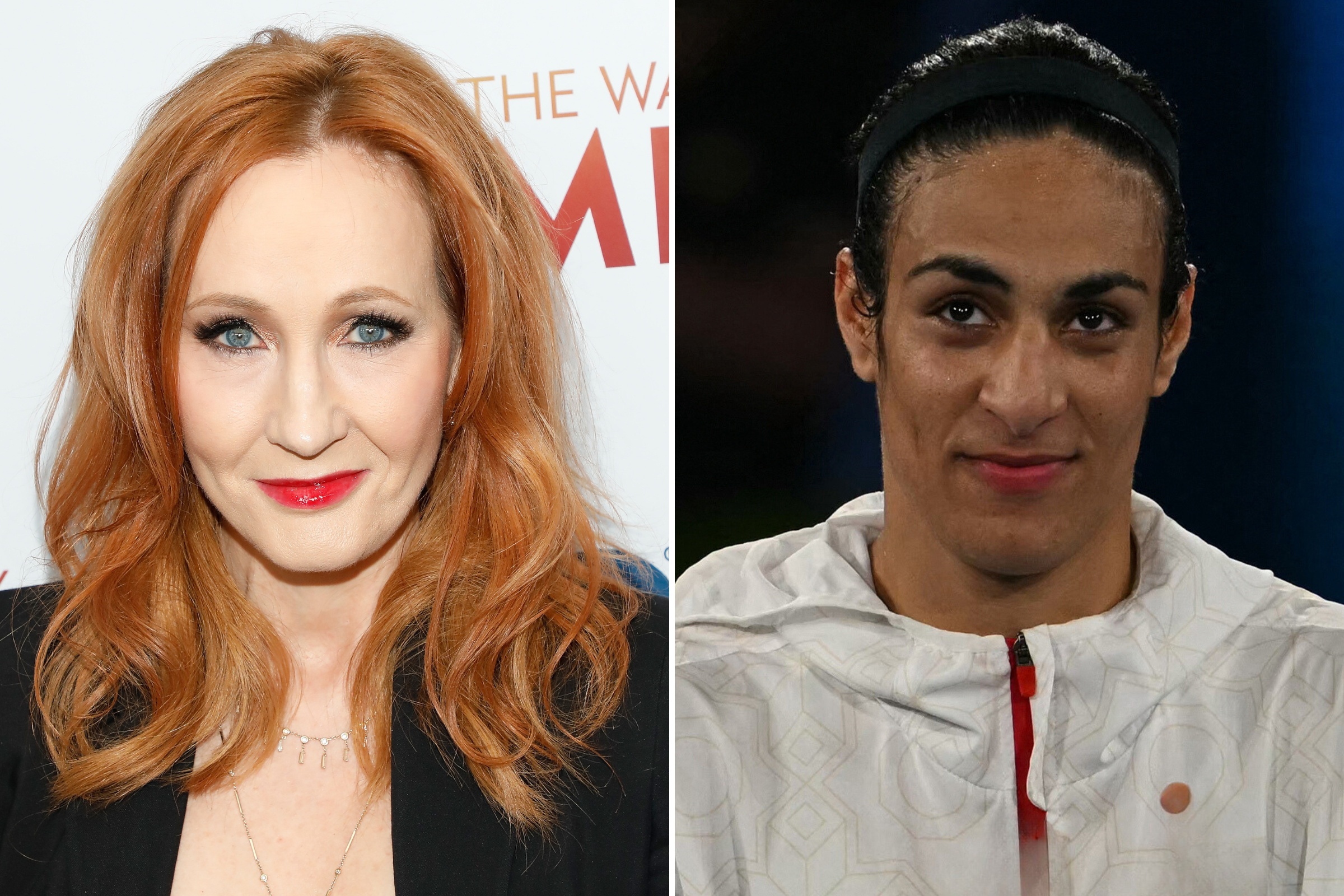Author J.K. Rowling has fallen silent on her usually busy X (formerly Twitter) feed, after Olympic gold medalist boxer Imane Khelif filed a legal complaint in France for alleged cyber harassment over statements regarding her gender.
On August 9, lawyers for Khelif filed a lawsuit with a special unit of the public prosecutor’s office in Paris, stemming from false statements that spread online about her gender after the Algerian boxer defeated Italy’s Angela Carini in her first fight of the 2024 Olympic Games. Carini pulled out 46 seconds into the bout and told reporters afterwards that she had “never felt a punch like this.”



In combat sports there’s a lot of derision for women who look too strong. Instead of complementing their training regiment and dedicated they get called ugly and a man all the damn time.
On the other end usually those same trolls will call women who train and still look feminine to be gold diggers training with so many men, that’s for posting pictures of themselves training, making weight etc. And send them dm’s offering money to be choked out.
I am sure that’s the case, but I think this has not to do with “breaking records” I.e. having success in sport. It might have to do with general gender stereotypes related to body types, for example, or with other stuff.
So either way the comment I was answering to seems counterfactual and sensationalistic.
It has to do with the fact that testosterone is a performance enhancement drug and men are categorically stronger than females, and a man punching a female is strictly unsafe.
At the moment we don’t have any concrete data, so in case it is based on a suspicion at most.
obviously stereotypes make people’s story more believable and easier to go viral and that is why people choose the stories they choose. doesn’t change the fact that there are people who would rather explain an unexpected level of success shown by a woman by saying she is probably not a woman. the story they choose is irrelevant really. They could have claimed she has cybernetic extensions in her muscles and it would be the same thing. And all you are saying is “but there are other very successful women who have not been treated that way”. Sure, did not say every single very successful woman is deterministically being treated unfairly. I am saying it is a tendency.
What I am actually saying is that the vast majority of successful women athletes didn’t suffer from this at this time at all. If this argument works only for Imane Khelif (not even the Taiwanese boxer, who has been mostly ignored), out of the hundreds of women who just won medals, maybe it is not an argument that can be generalized to “women of success”, and other causes have to be searched.
This to me is basic common sense: if a thesis works only on a handful of examples and there are hundreds of counter examples, maybe the thesis is wrong. A tendency would require also more examples.
So are you claiming that there is no historical bias towards downplaying women’s successes in general or that in history there was but now as a whole Earth has progressed so far that we have left all those behind? Or is it just that it doesn’t happen in sports but happens in other areas? Or women have been downplayed but never because of success but always for other reasons?
What you call a handful of examples is taking a magnifying glass and only looking at this particular event. If %10 of successful women have ever been downplayed because of their gender (due to unconscious biases for example) vs %1 of successful men, then this is still a handful of examples which nevertheless points to a significant bias.
None of those, really. Just that downplaying successful women doesn’t happen as much in sport, and when it does it’s not by stating they are men.
deleted by creator